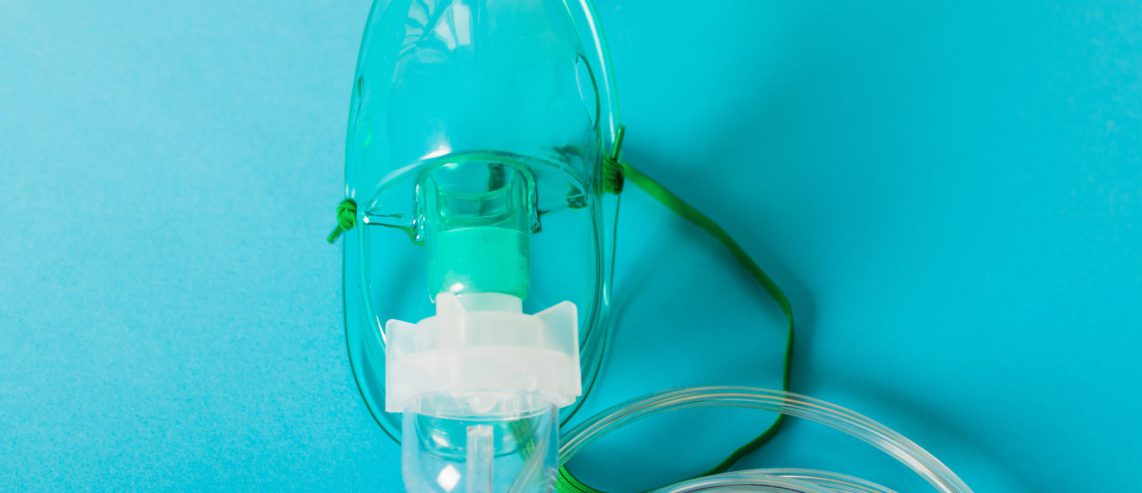Lung transplant is a first-line treatment option for people with severe lung disease. Those who have chronic lung conditions, such as chronic obstructive pulmonary disease (COPD), cystic fibrosis, or systemic sclerosis lung disease, may benefit from early referral for a lung transplant evaluation.
We asked Elizabeth Lendermon, MD, associate medical director, UPMC Lung Transplant Program, to answer some frequently asked questions about the benefits of early referral for lung transplant.
Q: When should you get a referral for a lung transplant evaluation?
A: Lung transplantation is a treatment for irreversible lung disease.
The exact time will be different for everybody; but generally, it’s beneficial to be referred for a lung transplant evaluation early. Chronic lung conditions can progress quickly, and early referral gives us more time to develop an individualized care plan that is best for your needs.
Q: What is a chronic lung condition?
A: Some chronic lung conditions include:
- COPD and emphysema.
- Pulmonary fibrosis.
- Alpha-1 antitrypsin deficiency.
- Pulmonary arterial hypertension.
- Sarcoidosis.
- Bronchiectasis.
- Cystic fibrosis.
- Secondary pulmonary hypertension (caused by either heart or lung disease).
- Systemic sclerosis lung disease.
Q: Why is it beneficial to get a referral for a lung transplant evaluation early?
A: Chronic lung conditions can worsen quickly. In addition, preparing for a lung transplant can take months, and the wait time on the national transplant waiting list can vary based on several factors, including organ availability and donor compatibility.
If you’re referred for a lung transplant evaluation before your condition becomes critical, we have more time to review your medical history and determine your care needs.
Not everyone with a chronic lung condition will benefit from a lung transplant. However, if lung transplant is the best treatment option for you, early referral will increase your chances of receiving a successful transplant.
Q: How can someone get a referral for a lung transplant evaluation at UPMC?
A: A patient referral form, along with additional information about lung transplant referral, is available on our website. To be referred for a lung transplant evaluation at UPMC, your doctor can complete the patient referral form and fax it to us. The fax number is 412-864-5913.
Once we receive the completed form and all other necessary documents, a member of our team will review your medical records and insurance benefits. If we determine that you’re a potential candidate for lung transplant, a member of our team will contact you to schedule an evaluation.
Q: What happens during a lung transplant evaluation?
A: The purpose of the evaluation is to determine if a lung transplant is the most suitable treatment option for you.
After you’re referred, we’ll review your medical history and insurance benefits. These two steps will be completed by a nurse coordinator and transplant finance specialist.
If you meet the initial requirements, we’ll schedule your evaluation at UPMC. The evaluation takes about a week. In addition to reviewing your medical history in more depth, we’ll conduct diagnostic tests, blood work, and various consultations.
The tests are extensive and thorough. They’ll help us determine the severity of your lung disease, the health of your other organs, and ultimately, if you’re a candidate for lung transplant.
Q: What else is important to know about the lung transplant evaluation?
A: There are several requirements that you must meet before we can move forward with the evaluation.
First, everyone who is referred for a lung transplant evaluation must identify a primary and backup caregiver. Caregivers are typically family members, close friends, adult children, or anyone else who will help you through the entire lung transplant process.
Your caregiver will need to help you before, during, and after your transplant. Visit our website to learn more about caregiver responsibilities.
All potential candidates must also be nicotine-free for six months before being placed on the waiting list. We can begin your lung transplant evaluation once a four-month nicotine-free period has been achieved.
Never Miss a Beat!
Subscribe to Our HealthBeat Newsletter!
Thank you for subscribing!
You can now select the specific newsletters you'd like to receive.
You are already subscribed.
Subscribe to more newsletters in our email preference center.
Sorry, an error occurred. Please try again later.
Get Healthy Tips Sent to Your Phone!
World-Class Lung Transplant Care
UPMC founded its Lung Transplant Program in 1982. Since then, our program has become one of the most experienced in the United States, with our surgeons having performed more than 2,350 lung and heart-lung transplants. We have achieved this volume while maintaining outcomes on par with national averages.
For more information about the lung transplant process, visit the UPMC Lung Transplant Program website or call us at 844-548-4591.
Editor's Note: This article was originally published on , and was last reviewed on .
About UPMC
Headquartered in Pittsburgh, UPMC is a world-renowned health care provider and insurer. We operate 40 hospitals and 800 doctors’ offices and outpatient centers, with locations throughout Pennsylvania, Maryland, New York, West Virginia, and internationally. We employ 4,900 physicians, and we are leaders in clinical care, groundbreaking research, and treatment breakthroughs. U.S. News & World Report consistently ranks UPMC Presbyterian Shadyside as one of the nation’s best hospitals in many specialties and ranks UPMC Children’s Hospital of Pittsburgh on its Honor Roll of America’s Best Children’s Hospitals. We are dedicated to providing Life Changing Medicine to our communities.

